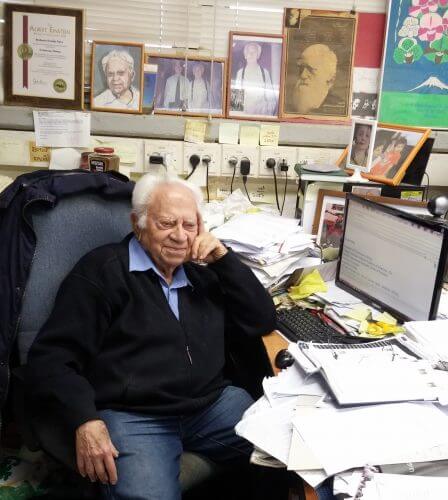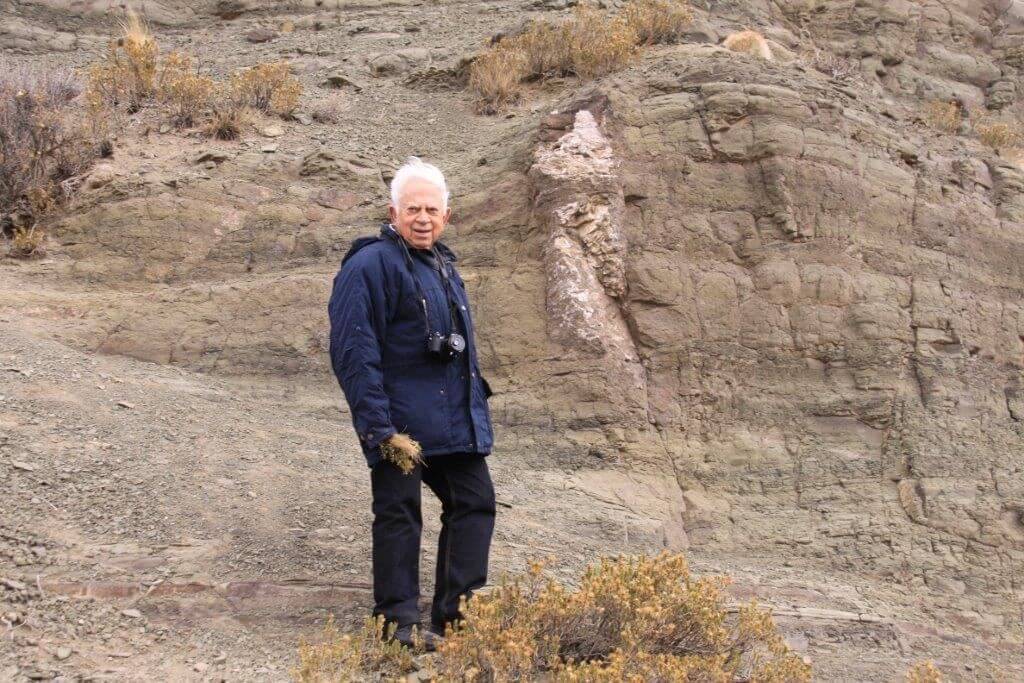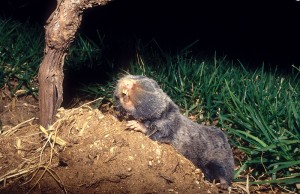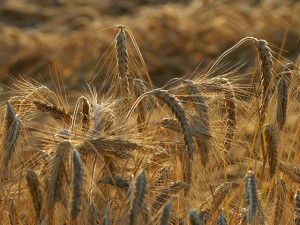Prof. Avitar Nebo, winner of the 2016 Israel Prize for Life Sciences Research and one of the most important environmental scientists in Israel, gives his opinion on teaching evolution in schools, on the dangers of natural gas injection into Israel, on preserving nature and on his plans for the future
By Tamar Scherzer, Angle - Sochnol Yedioth for Science and the Environment

"When I was four years old, I found a bedbug's nest in a rose garden. It fascinated me, and even then I became interested in the study of life", recalls Prof. Avitar (Ivy) Nebo, 87 years old, who won the Israel Prize for Life Sciences Research last month. Nevo is an evolutionary biologist who is considered a world-renowned expert in his field, and in the reasons for the award committee it is stated that he is "one of the fathers of modern evolutionary biology", among other things due to his research on the adaptation of species in nature to changing environmental conditions, and due to his groundbreaking research on the blind rat, which can lead to the development of approaches to healing Human diseases, including blood and heart disease, stroke and cancer.
Nevo is an emeritus professor at the University of Haifa, who previously founded the biology department at the Kibbutzim Oranim seminary, the Institute of Evolution of the University of Haifa and the International Center for Doctoral Students in Evolution. Nevo published about 1,200 articles and 24 books, and discovered hundreds of species of new organisms. Even at his advanced age, he is still the director of an active laboratory at the University of Haifa where eight researchers work in four different fields of research - all related to the subject of evolution, which is close to his heart.
On the occasion of International Science Day and after winning the prestigious Israel Prize, Nevo took time to talk about his work - in the past, present and future - and the environmental challenges facing the State of Israel today.

Roses, toads and Julian Huxley
"Both my parents were nature lovers. My father worked in rose gardening and my mother raised toad tadpoles at home, so I was born and raised as a nature lover. When I was 12 years old, I read the book 'Evolution: The Modern Synthesis' by Julian Huxley, the book that sparked my interest in the theory of evolution", says Nevo, who claims that evolution is not another science, but the basis of all sciences. "It is impossible to understand the world without evolution", he says. "The cosmos, life and human culture were created in the processes of evolution. I think that the theory of evolution should be deeply integrated in all areas of teaching, from kindergartens through schools to universities. This is a necessary and basic thing in my opinion."

Nevo started his first research (on which he is still working today) following his work in agriculture at Kibbutz Sa'ar, which he founded with his friends from the "Hashomer HaTzair" movement. Nebo was working in the vegetable garden in the kibbutz and discovered the litter mounds of the blind rat. "I started researching the evolution of the blind rat 68 years ago and this process fascinates me to this day. For farmers, the rat is a nuisance, but for medicine, it is a real hope for curing cancer," he says. "The rat lives underground in low-oxygen conditions, and it has developed genes resistant to these conditions. Cancer develops in the body under low-oxygen conditions, therefore the rat as an animal adapted to low-oxygen conditions has developed genetic resistance against cancer, including a mechanism that kills cancer cells."
Wild grains and Dead Sea mushrooms
Another subject that Nevo has been researching since 1975 is the evolution of wild grains, which is very important today due to climate change and the accelerated growth of the population, which require an increase in the amount of food. "Cultural grains are the basis of food," Nebo explains. "But they have one major problem - they are sensitive to diseases and ecological constraints and need cultivation and improvement with the help of the wild grains, which were an outlet for the cultured grains." Nevo's research examined this natural variety of species - the "mother of wheat" and the "mother of barley", for example - and discovered that it is necessary for the genetic improvement of the cultivated plants (mainly grains such as wheat and barley), which form the basis of the human diet. Nebo discovered that while the cultivated grains are sensitive to disease, drought and salinity, the wild grains are rich in genetic reserves that are resistant to ecological constraints. Therefore, the gene pool of the wild grains can be used to improve the cultivated grains, so that they will also be adapted to changes in environmental conditions, especially in the face of global warming.

Nebo built the world's largest gene banks of wild wheat and wild barley at the University of Haifa, and his research on these grains served as the basis for an agricultural revolution in their improvement.
Nevo is certainly not resting on its laurels and continues to set new goals for itself, both for the near and distant future. "If we effectively utilize the genetic reserves of wild plants, we can save world agriculture, diversify it and allow it to exist even in steppe and desert areas," he says. "In our research, we also found species of fungi that live in the Dead Sea and have a genetic resistance to salinity that allows them to live at 35 percent salt - the salinity level of the Dead Sea today. We plan to extract genetic pools of salt-resistant genes from them and transfer them to cultivated plants to grow them in deserts and salt marshes, thus increasing the food for the world's steadily growing population."
War for the preservation of nature
Nevo did not leave his mark only on the field of evolutionary biology, but also took part in shaping other fields of Israeli science. In 1949 he joined the Geological Science Corps and participated in the geological mapping of the Negev in order to find mineral treasures for the young country. Today, he has something to say about the natural treasure that is causing an uproar in the country. "Natural gas should and should be exploited, but it should be the property of the public and not the property of the capitalists," he says. "You also have to make sure it doesn't cause contamination. The gas may break out of the transport pipes and this may cause an ecological disaster. Gas and oil can seriously pollute the biological world, like the disaster that happened in the past. If a natural gas pipeline explodes, a disaster of the same magnitude may occur."
Conservation of nature, in general, is a subject close to Nebo's heart, who was a student, and later also a colleague, of Heinrich Mendelssohn, one of the founders of nature conservation and zoological research in Israel. "We need to preserve nature for the sake of future generations in all respects, we must not let urbanization and real estate companies take over the open spaces without restriction," says Nebo emphatically. "Those with interests want to make a profit, but they are less interested in keeping the person as an individual and a healthy, living and breathing society. It is mainly the role of the politicians to create the appropriate balance between construction and nature conservation, and to create supervision and conservation of natural sites throughout the country, not just the beaches. This is a difficult war, because the economic interests have strong political power and the real estate companies may occupy all the open areas that are suitable for construction."
"Our job is to ensure that many open areas remain in the Land of Israel, with a certain connection between them, so as not to imprison the animals without the ability to move from place to place. This is necessary for their continuity", Nevo summarizes his message, both to scientists and ordinary citizens. "It is important to preserve the diversity of species and the green areas, because this is the basis of human existence. Without nature conservation we will be left with only concrete and cement, and it will be a national and international disaster. As individuals, we need to unite and sign the many petitions that are published on behalf of the green bodies, because alone we are weak against the giant corporations, but together we will have the power to make a change."
